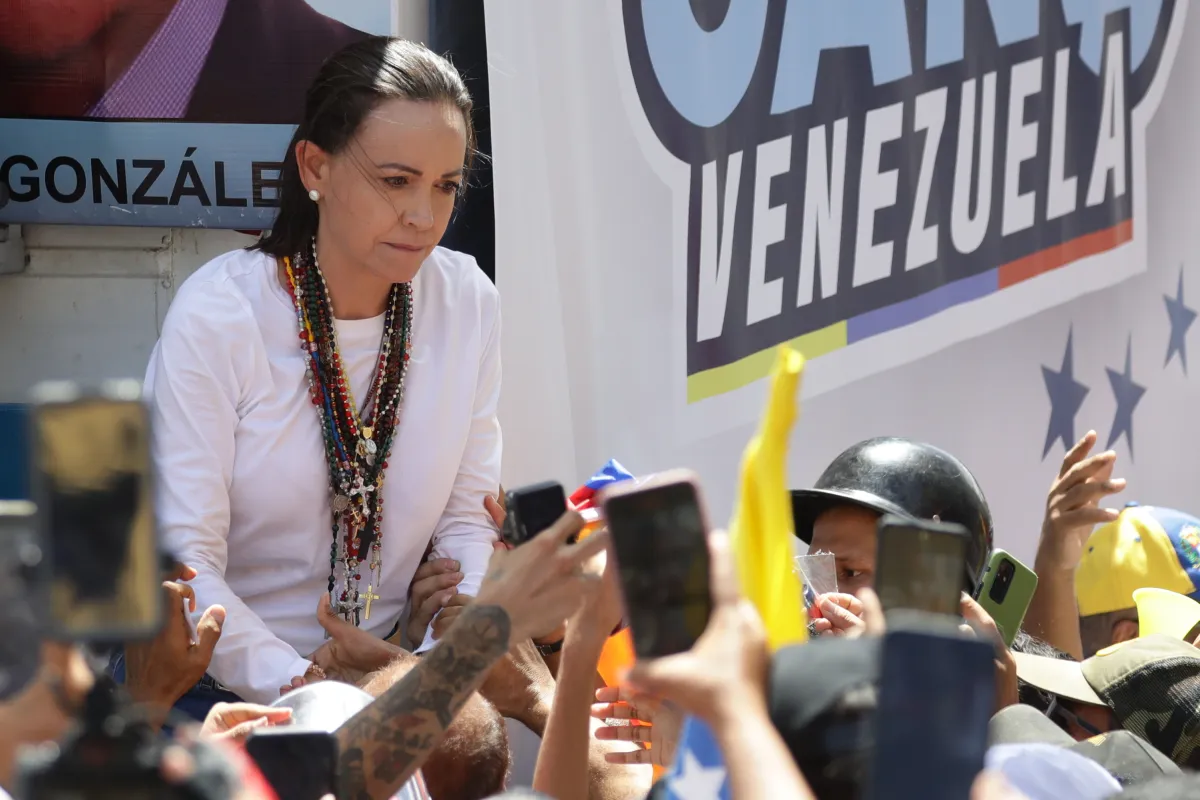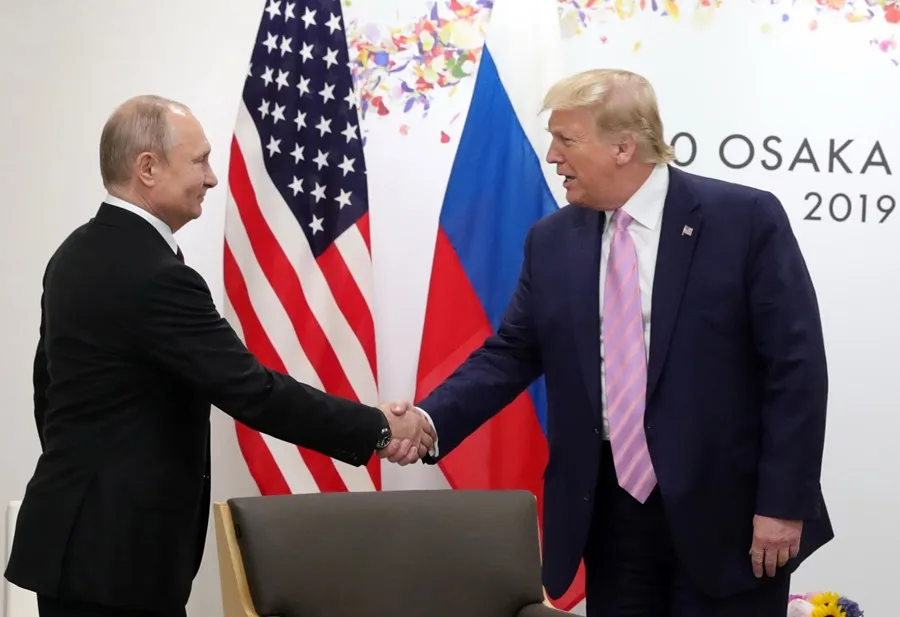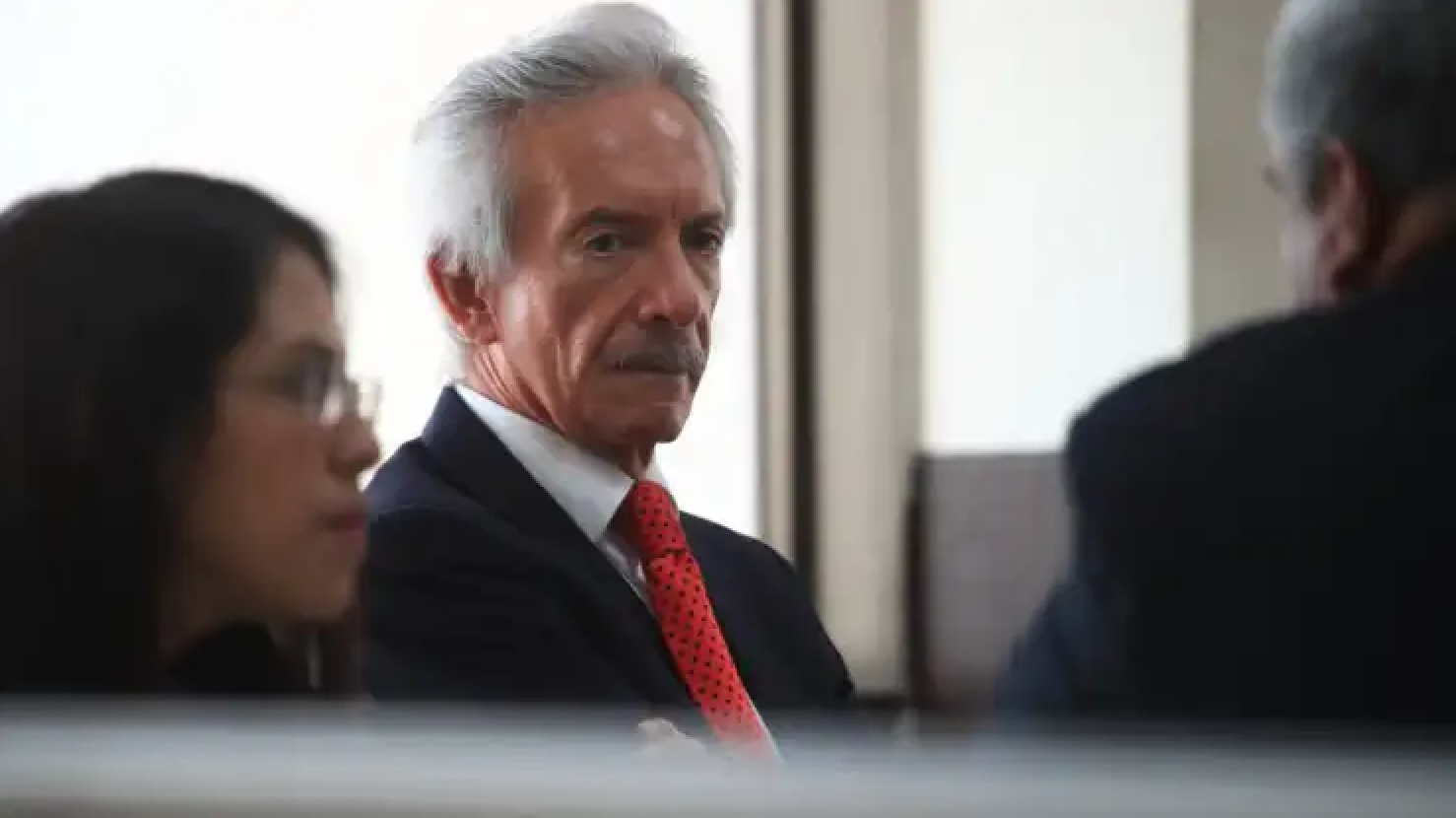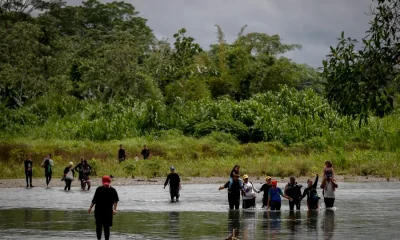International
María Corina Machado rejected the proposal for new elections and a coalition government

The leader of the Venezuelan opposition, María Corina Machado, rejected on Thursday Brazil’sproposal to hold new elections or form a coalition government, and insisted that the results that gave Nicolás Maduro the winner in the presidential elections are fraudulent.
“The elections took place and Venezuelan society expressed itself in very adverse conditions, where there was fraud and we still managed to win,” Machado responded at a virtual press conference with media in Argentina and Chile, among which was EFE.
“We must respect the voice of the people, we must respect sovereignty,” Machado emphasized and asked: “Would you accept that another election is called in your respective countries?”
“If this is a decision that is going to be made at a table, so that they did it in the first place?” he added.
Machado also stressed that “elections are defined by the votes, not by the dome agreements.”
The National Electoral Council (CNE) proclaimed Maduro the winner, but Machado insisted on Thursday on “the monumental victory” of the opponent Edmundo González Urrutia with 7.3 million votes -almost 84% of the minutes-, against the 3.3 million votes that he said Maduro obtained.
The Brazilian president, Luiz Inácio Lula da Silva, suggested on Thursday two possible solutions to the post-election crisis in Venezuela: the formation of a coalition government that integrates members of Chavismo and the opposition or the holding of new elections.
This last initiative was supported by his American peer, Joe Biden, but was rejected by the Government of Mexico, while the Colombian president, Gustavo Petro, suggested for Venezuela a “national front” like the one that existed in his country in the twentieth century, in which liberals and conservatives took turns power as a “transitional” step towards a “definitive solution” to the crisis.
“He’s going to a second election, and if he doesn’t like the results, will he go to a third, fourth, fifth, until Maduro likes the results? Would you accept that in your country?” Machado wondered.
“Unknowing” the elections of June 28 “is a lack of respect for the Venezuelans who have given everything. Popular sovereignty is respected. The elections have already happened,” he said.
Regarding the idea of a coalition government, he asked to “be very careful” because he differentiated the examples in other countries where the parties have “political differences” but “have been democratic or have not been involved in criminal cases,” from what happens in Venezuela.
Machado recalled that his group offers “incentives and safeguards” to the ruling party members who want to approach their ranks to achieve a democratic transition in the face of an assumption of González Urrutia on January 10, to whom he promises that there will be no “persecution” or “revenge.”
“We are willing,” but “the regime has so far refused” to negotiate the transition, he said.
After the elections in Venezuela, the governments of Brazil, Colombia and Mexico began contacts to find a solution to the crisis, a mediation effort that has, among others, the support of the United States.
International
Trump urges Putin to reach peace deal

On Monday, U.S. President Donald Trump reiterated his desire for Russian President Vladimir Putin to “reach a deal” to end the war in Ukraine, while also reaffirming his willingness to impose sanctions on Russia.
“I want to see him reach an agreement to prevent Russian, Ukrainian, and other people from dying,” Trump stated during a press conference in the Oval Office at the White House.
“I think he will. I don’t want to have to impose secondary tariffs on Russian oil,” the Republican leader added, recalling that he had already taken similar measures against Venezuela by sanctioning buyers of the South American country’s crude oil.
Trump also reiterated his frustration over Ukraine’s resistance to an agreement that would allow the United States to exploit natural resources in the country—a condition he set in negotiations to end the war.
International
Deportation flight lands in Venezuela; government denies criminal gang links

A flight carrying 175 Venezuelan migrants deported from the United States arrived in Caracas on Sunday. This marks the third group to return since repatriation flights resumed a week ago, and among them is an alleged member of a criminal organization, according to Venezuelan authorities.
Unlike previous flights operated by the Venezuelan state airline Conviasa, this time, an aircraft from the U.S. airline Eastern landed at Maiquetía Airport, on the outskirts of Caracas, shortly after 2:00 p.m. with the deportees.
Interior Minister Diosdado Cabello, who welcomed the returnees at the airport, stated that the 175 repatriated individuals were coming back “after being subjected, like all Venezuelans, to persecution” and dismissed claims that they belonged to the criminal organization El Tren de Aragua.
However, Cabello confirmed that “for the first time in these flights we have been carrying out, someone of significance wanted by Venezuelan justice has arrived, and he is not from El Tren de Aragua.” Instead, he belongs to a gang operating in the state of Trujillo. The minister did not disclose the individual’s identity or provide details on where he would be taken.
International
Son of journalist José Rubén Zamora condemns father’s return to prison as “illegal”

The son of renowned journalist José Rubén Zamora Marroquín, José Carlos Zamora, has denounced as “illegal” the court order that sent his father back to a Guatemalan prison on March 3, after already spending 819 days behind barsover a highly irregular money laundering case.
“My father’s return to prison was based on an arbitrary and illegal ruling. It is also alarming that the judge who had granted him house arrest received threats,” José Carlos Zamora told EFE in an interview on Saturday.
The 67-year-old journalist was sent back to prison inside the Mariscal Zavala military barracks on March 3, when Judge Erick García upheld a Court of Appeals ruling that overturned the house arrest granted to him in October. Zamora had already spent 819 days in prison over an alleged money laundering case.
His son condemned the situation as “unacceptable”, stating that the judge handling the case “cannot do his job in accordance with the law due to threats against his life.”
-

 Central America5 days ago
Central America5 days agoNicaragua denounces Costa Rica’s position in SICA as aligned with foreign interests
-

 Central America5 days ago
Central America5 days agoNicaragua’s new judicial law consolidates power in Ortega and Murillo’s hands
-

 Central America5 days ago
Central America5 days agoPanama’s president declares Darién gap ‘closed’ amid sharp drop in migrant flow
-

 International3 days ago
International3 days agoSon of journalist José Rubén Zamora condemns father’s return to prison as “illegal”
-

 International5 days ago
International5 days agoMarco Rubio warns Venezuela against military action against Guyana
-

 International3 days ago
International3 days agoMiyazaki’s style goes viral with AI but at what cost?
-

 Central America2 days ago
Central America2 days agoPanama police clarifies that Interpol alert for Martinelli is still pending
-

 International2 days ago
International2 days agoDeportation flight lands in Venezuela; government denies criminal gang links
-

 Central America16 hours ago
Central America16 hours agoU.S. Homeland Security Secretary urges Mexico to strengthen Guatemala border
-

 International16 hours ago
International16 hours agoTrump urges Putin to reach peace deal
-

 Central America16 hours ago
Central America16 hours agoPanama grants Martinelli 72-hour extension to travel to Nicaragua
-
Central America4 days ago
Nicaragua revokes legal status of 10 more NGOs, bringing total to over 5,600















